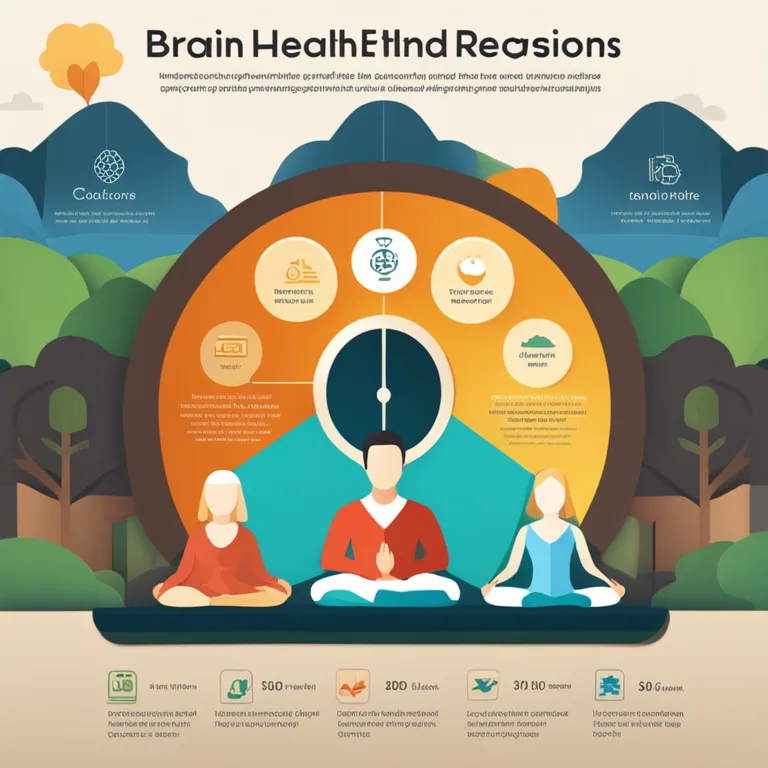
Meditation: Enhancing Cognitive Flexibility
Discover how mindfulness meditation can contribute to improved mental agility and cognitive flexibility, essential for adapting to life's ever-changing circumstances.
article by Hina Kurosawa
An Introduction to Mindful Meditation
Meditation has long been practiced as a means of fostering inner peace and expanding one's consciousness. In recent years, mindfulness, a derivative of traditional meditation practices, has gained significant traction for its potential in improving cognitive functions. Mindfulness meditation involves maintaining a moment-by-moment awareness of our thoughts, feelings, bodily sensations, and surrounding environment. It encourages a nonjudgmental acknowledgment of the present experience, developing a heightened connection with the self and fostering emotional equilibrium.

Cognitive Flexibility Defined
Cognitive flexibility is the mental ability to swiftly switch between thinking about two different concepts or to think about multiple concepts simultaneously. As a crucial component of executive function, cognitive flexibility enables individuals to adapt to new, unexpected, and dynamic environments or rules. In a world that's constantly evolving, being cognitively flexible equips us to better manage the complexities of modern living, from work pressures to personal relationships.

The Link Between Meditation and Flexibility
Scientific evidence suggests that the regular practice of mindfulness meditation can enhance cognitive flexibility. The act of consistently redirecting one's attention during meditation exercises the brain, improving its capacity to adapt to new challenges. By presenting a single-pointed focus in the midst of distraction, mindfulness meditation trains practitioners in the art of mental agility, crucial for cognitive adaptability.

Research on Mindfulness and Cognitive Health
Numerous studies, including neuroscience research in 2024, have demonstrated that meditation can lead to changes in brain regions associated with attention, memory, and executive functions. These changes are believed to support an increase in cognitive flexibility. Moreover, meditative practices have been found to reduce stress levels, which can negatively impact cognitive function, suggesting that mindfulness offers a dual benefit for mental performance.

Practical Applications for Everyday Life
Applying the principles of mindfulness meditation into daily life may result in greater mental clarity and improved problem-solving abilities. Individuals might observe a marked enhancement in their ability to approach complex tasks, navigate social dynamics, and make decisions. The beauty of mindfulness is that it doesn't require special equipment or extensive time investment – just a few minutes a day spent in deliberate, focused contemplation can pave the way for stronger cognitive flexibility.
Getting Started with Mindfulness Meditation
For those interested in enhancing their cognitive flexibility through mindfulness, getting started is straightforward. Beginners can benefit from guided meditation sessions available through online platforms, apps, or local classes, which provide step-by-step instructions. It's essential to create a consistent practice, even if it's just five or ten minutes a day, to experience the cumulative benefits that mindfulness meditation can offer.
Conclusion and Future Implications
With mindfulness meditation poised to remain a key trend in mental health and well-being for the foreseeable future, its ability to augment cognitive flexibility will continue to attract research and interest. Embracing this practice can hold significance not just for personal growth but also for societal advancement, as individuals equipped with higher cognitive flexibility contribute to a more resilient and innovative community.
Published: 1/8/2024
Modified: 1/8/2024
More predictions
Come back here soon to learn more about yourself and your future


Meditation's Impact on the Limbic System
Explore how meditation can positively influence your emotional and neurological well-being through its effects on the limbic system.


A Guide to Leading Mindfulness Meditation
Discover the steps to effectively lead a session of mindfulness meditation, fostering tranquility and awareness in your daily life.


Mindfulness Meditation Benefits for High Schoolers
Discover how mindfulness meditation can help high school students navigate academic pressure, enhance focus, and improve overall wellbeing.